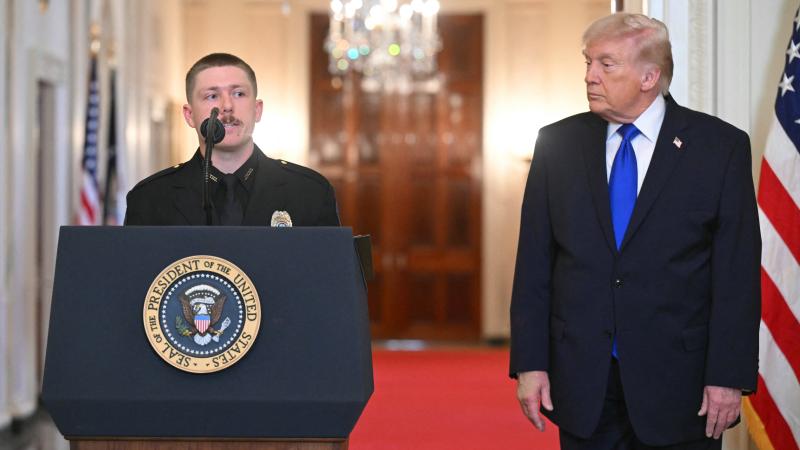Supreme Court justices propose testimony from Guantánamo Bay prisoner in CIA torture case
The three justices have suggested hearing testimony from the first post-9/11 detainee to be tortured by the CIA
The Supreme Court is addressing several novel questions about a case concerning the torture of 9/11 detainee who is still being held the the U.S. military's Guantánamo Bay detention center.
During proceedings Wednesday, the justices attempted to address two issues – torture and government secrecy.
Abu Zubaydah, a Palestinian, was captured in March 2002 and was thought by the U.S. government to be a top-ranking member of Al Qaeda.
According to a 2014 report from a select senate panel, "the CIA later concluded Zubaydah was not a member of Al Qaeda."
Zubaydah was the first prisoner held following the 9/11 attacks to undergo so-called enhanced interrogation techniques, which were applied based on a list created by two psychologists, Dr. James Mitchell and Bruce Jessen – both CIA contractors.
The justices are attempting to answer the question of whether the U.S. government can invoke the state secrets doctrine to block the testimony of the CIA contractors who were involved in the waterboarding interrogations of Zubaydah.
Zubaydah's legal team is attempting to subpoena the contractors in connection with a Polish criminal investigation, which was prompted by a European Court of Human Rights determination that he had been tortured in 2002 and 2003 at secret sites operated by the CIA, one such site being in Poland.
The U.S. is now attempting to invoke the state secrets doctrine to avoid a formal admission of what is already widely suspected to be the case: that there is, or was, a CIA black site in Poland, at which Zubaydah was tortured.
Brian Fletcher, the acting U.S. solicitor general, argued before the court that while the prisoner's treatment was not a secret.
"Our nation’s covert intelligence partnerships depend on our partners' trust that we will keep those relationships confidential," he said.
By confirming or denying the existence of the black site in Poland, that trust would be shattered, Fletcher also argued.
Looking to bypass the government's objection to testimony from the CIA contractors, several justices asked about the possibility that the witness could testify about what happened to him.
"Why not make the witness available? What is the government's objection to the witness testifying to his own treatment?" asked Justice Neil Gorsuch.
That question was supported later on by Justices Stephen Breyer and Sonia Sotomayor, the later of whom asked Fletcher, "Are you going to let him testify as to what happened to him?"
While lawyers for Zubaydah said they were not seeking testimony about Poland or the location of the black site, Justice Elena Kagan presented what she determined was the flaw in what would be testimony about the torture that excluded mention of the location.
The U.S. government has "conceded that Abu Zubaydah was tortured, but, because of relations with allies with cooperating intelligence services, they won’t say where it happened," she said. "And you’re here saying, 'I need to know when it happened, and to know when it happened' the government would essentially be saying where it happened too," she said.















